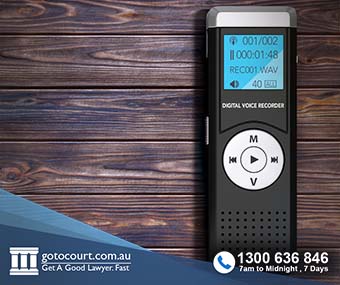Home Detention (Tas)
In December 2018, the Tasmanian government passed legislation allowing courts to sentence offenders to home detention orders. Under Part 5A of the Sentencing Act 1997, an offender can now be ordered to be at a specified premise and to comply with strict conditions including electronic monitoring.
Home detention orders allow courts to impose custodial sentences that allow offenders to get their lives on track and become productive members of society.
What does home detention entail?
A home detention order may be made for a period of up to 18 months. A home detention order is subject to certain core conditions. These are:
• Not to commit an offence punishable by imprisonment;
• To reside at the home detention premises;
• Be at those premises at the times specified by the order;
• Permit police or probation officers to enter those premises;
• Permit the police to search the premises, conduct a frisk search of the offender and take a sample of a substance found at the premises or on the offender’s person;
• Comply with the reasonable and lawful directions of probation officers;
• Submit to electronic monitoring;
• Submit to drug/alcohol testing as required;
• Engage in personal development training, counselling and treatment as directed.
If the court makes a home detention order and does not require the offender to submit to electronic monitoring, it must specific in the order the reasons the offender is not required to be electronically monitored. A home detention order may also impose special conditions, such as to abstain from alcohol or to take prescribed medication.
When is it ok not to be at the premises?
The Sentencing Act provides that an offender may not be at the premises of the home detention order if:
• They are seeking urgent medical treatment;
• They are avoiding serious injury or death;
• They have the approval of their probation officer.
Who can be sentenced to home detention?
A court can make a home detention order if:
• It has convicted the person of an offence;
• It would have sentenced the person to imprisonment if home detention were not available;
• It considers a home detention order is appropriate;
• It has considered a pre-sentence report as to whether the offender is suitable for home detention;
• The offender consents to the home detention order;
• The offender has suitable premises to reside at during a home detention order;
• Every adult who resides at the premises has consented to a home detention order being made in relation to the offender;
• The offender has not been found guilty of a family violence offence, a violent offence or a sexual offence against a person who resides at the premises;
• There is no serious risk that the offender will commit a family violence offence, a violent offence or a sexual offence during the period of the order.
A home detention order can be made in relation to an offender who has a community service order or a probation order in force. An offender can be on more than one home detention order at the same time.
Breaches of home detention orders
Where a person on a home detention order breaches the conditions of the order, the prosecution can apply to have the court deal with the breach. If the court finds the offender has breached the order, it must:
• Confirm the order; or
• Vary the order; or
• Cancel the order and deal with the offender in any way that the court could deal with an offender who had just been found guilty of the offence/s.
Where a person on a home detention order breaches the order by committing a new offence, the prosecution can apply to have the court deal with the breach. If the new offence is an offence that is not punishable by imprisonment, the court can take any of the actions listed above in relation to the breach.
If the new offence is an offence punishable by imprisonment, the court must:
• Cancel the home detention order; and
• Impose any sentence (other than home detention) that the court could have imposed for the original offence/s.
However if the new offence is an offence which carries a penalty of imprisonment and the court is satisfied that there are exceptional circumstances, it may confirm or vary the home detention order.
Electronic monitoring
The Monitoring and Compliance Unit of the Department of Corrective Services provides 24- hour monitoring of offenders of home detention. Offenders who are made subject to electronic monitoring are fitted with a GPS ankle band, which can track their movements and verify that they are at the home detention premises when they are supposed to be.
The Monitoring and Compliance Unit responds to breaches of home detention orders and ensures conditions are observed.
GPS ankle bands are also used to monitor people who are excluded from entering certain areas by the conditions of a Family Violence Order.
If you require legal advice or representation in a criminal matter or in any other legal matter, please contact Go To Court Lawyers.







